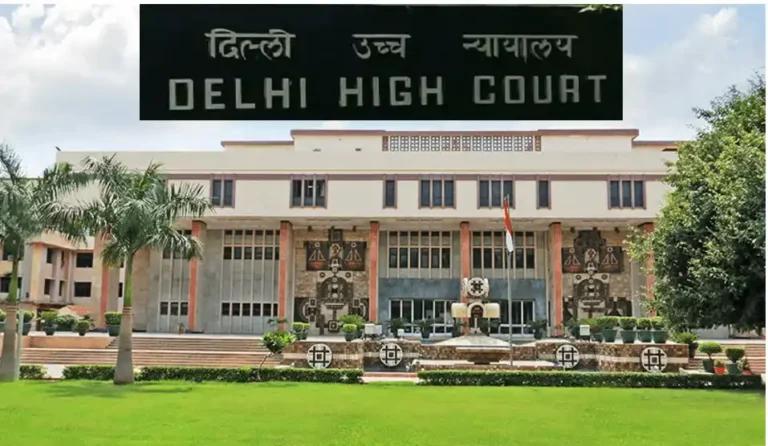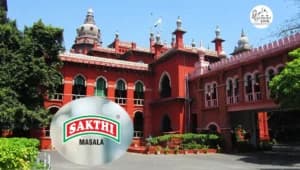The Delhi High Court, in a significant ruling, has clarified that the IVth Schedule of the Arbitration and Conciliation Act, 1996, which deals with the fees of arbitrators, is not mandatory for international commercial arbitrations. Justice Sachin Datta, while delivering the verdict, relied on Explanation to Section 11(14) of the Act, which explicitly excludes its mandatory applicability in such cases.
Read also: Judges Must Remain True To Law: Justice Chandra Dhari Singh Bids Farewell To Delhi High Court
Background of the Case
The dispute stemmed from a contract agreement dated April 12, 2006, concerning the four-laning of the Jhansi-Lakhanadon section (KM 297 to KM 351) of National Highway-26 in Madhya Pradesh. When disagreements arose, the Petitioner initiated arbitration on September 17, 2022.
However, an issue emerged regarding the fees set by the Arbitral Tribunal. In its order dated October 30, 2023, the tribunal fixed the fees at Rs. 3,00,000 per arbitrator per sitting.
Read also: Delhi High Court Orders Removal of Allegedly Defamatory Content About ANI on Wikipedia
Feeling aggrieved, the Petitioner filed an application on May 16, 2024, seeking to modify this order. The key request was to cap the arbitrators’ fees at Rs. 30,00,000, as prescribed in the IVth Schedule of the Arbitration Act.
The Arbitral Tribunal, however, rejected this application on October 21, 2024, citing that the present arbitration fell under Section 2(1)(f)(ii) of the Act and, as per Explanation to Section 11(14), the IVth Schedule did not apply.
Read also: Delhi High Court: IVth Schedule of Arbitration Act Not Mandatory for International Arbitrations
The Petitioner raised strong objections to the arbitrators' fee structure, arguing:
- The principle of party autonomy was ignored in the tribunal’s decision.
- The tribunal had conducted 13 hearings so far, with arguments still ongoing on preliminary issues.
- Based on the current fee structure, the total cost of arbitration would reach Rs. 1,17,00,000, with the Petitioner required to pay Rs. 58,50,000—far exceeding the Rs. 30,00,000 cap under the IVth Schedule.
- The unilateral fixing of fees by the tribunal was in violation of Supreme Court precedent in ONGC Ltd. v. Afcons Gunanusa JV (2024) 4 SCC 481, which held that: “Arbitrators do not have the power to unilaterally determine their own fees. Such unilateral determination violates party autonomy and the prohibition of in rem suam decisions.”
After reviewing the records, the Delhi High Court rejected the Petitioner’s claim that the tribunal unilaterally fixed its fees.
Key observations made by the court:
- Fees Were Fixed Early On:
- As early as the second sitting, the Arbitral Tribunal had clearly stated that its fee would be Rs. 3,00,000 per arbitrator per sitting, to be shared equally between both parties.
- At that stage, no objections were raised by the Petitioner.
- Prior Assurance to Clear Fees:
- The tribunal had directed both parties to pay the outstanding arrears of fees.
- During proceedings on March 5, 2024, both parties, through their counsel, assured the tribunal that they would clear the dues.
- Petitioner Delayed Raising the Issue:
- The application challenging the fee structure was only filed on May 16, 2024, nearly seven months after the order of October 30, 2023.
- The application did not claim that the tribunal’s decision was unilateral; rather, it only sought a modification to set a cap on fees.
- ONGC Case Was Not Applicable:
- The court found that the ONGC Ltd. v. Afcons Gunanusa JV judgment did not apply in this case.
- In the ONGC case, the arbitrators unilaterally imposed fees, whereas in the present case, the fee structure was communicated early on, and no objections were raised initially.
Based on these findings, the Delhi High Court dismissed the Petitioner’s plea, affirming that:
- The application for modification of the fee order was rightly rejected by the Arbitral Tribunal.
- The IVth Schedule of the Arbitration Act was not mandatorily applicable in international commercial arbitrations, as clarified in Section 2(1)(f)(ii) and Explanation to Section 11(14).
The ruling reinforces the importance of timely objections in arbitration and affirms that arbitration fees must be mutually agreed upon or contested at the earliest stage.
Accordingly, the Court dismissed the present petition.
Case Title: NHAI v. Ssyangyong Engineering Construction Co. Ltd.
Case Number: W.P. (C) 2059/2025 & CM APPL. 9691/2025
Appearance:
Appellant – Mr. Ankur Mittal and Mr. Ashish Gajwani, Advocates.
Respondents – Mr. Navin Kumar, Ms. Surbhi Agarwal, Ms. Rashmeet and Mr. Shantanu Sharma, Advocates
Date: 28.03.2025















